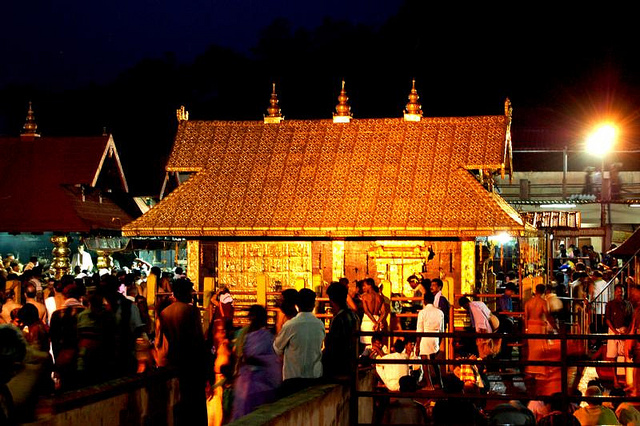New Delhi: The Supreme Court on Wednesday said that denying women entry into Kerala’s Sabarimala shrine was against the Constitutional provisions.
A bench comprising of Chief Justice Dipak Misra, Justices Rohinton Fali Nariman, AM Khanwilkar, DY Chandrachud and Indu Malhotra was hearing a plea if prohibiting the entry of women in the temple on grounds of biological factors was discriminatory and against the Constitutional mandate.
The Chief Justice was of the view, “On what basis you (temple authorities) deny the entry. It is against the Constitutional mandate. Once you open it for a public, anybody can go”
The Indian Young Lawyers Association petitioned against the 800-year-old practice of prohibiting the entry of women into the popular Lord Ayyappan Temple.
The PIL sought directives to the Kerala government, the Travancore Devaswom Board, Chief Thanthri (priest) of Sabarimala Temple and the District Magistrate of Pathanamthitta to ensure entry of female devotees between the age group of 10 to 50 years.
The petitioner’ counsel Ravi Prakash Gupta told the court the restrictions on the entry of women in Sabarimala temple is against the essence of their religious affairs as discrimination on the entry of women in the temple is “neither a ritual nor a ceremony associated with Hindu religion”.
“Mere sight of a woman does not affect anybody’s celibacy, if one has taken an oath of it, otherwise such oath has no meaning”, added Gupta.
Going by the Constitution, Article 14 guarantees the right to equality, Article 15 prohibits discrimination on grounds of religion, race, caste, sex or place of birth, and Article 17 abolishes untouchability and forbids its practice.

















